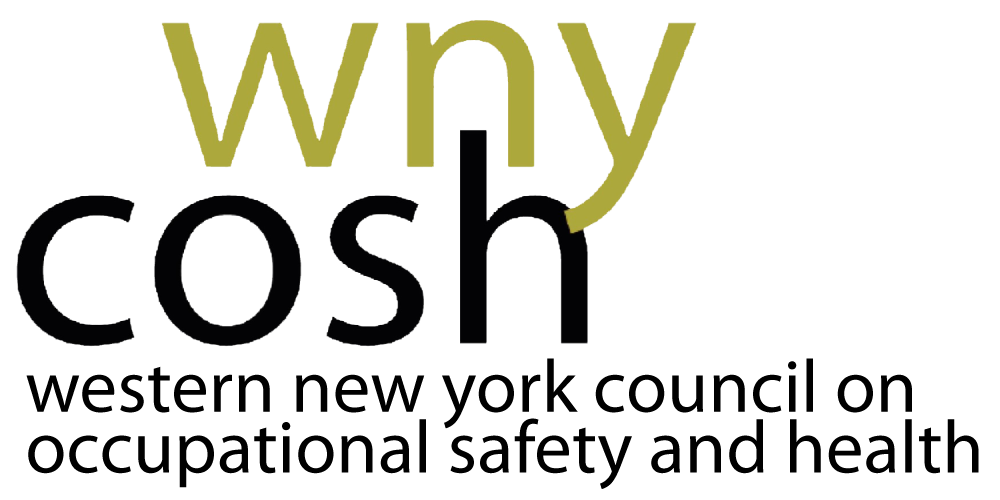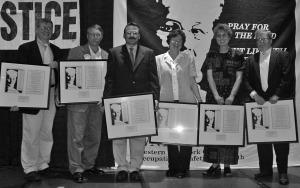
WNYCOSH was founded in 1979 by WNY union locals, labor activists, labor educators, health and legal professionals to advocate for safe & healthy workplaces for all workers.
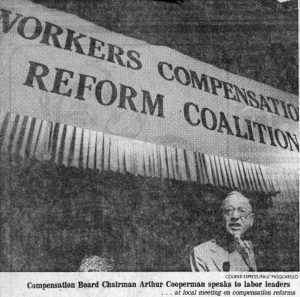
In 1980 WNYCOSH formed the Worker Comp Reform Coalition with labor and comp attorneys to push for seven areas of reform to the NYS workers’ compensation system.
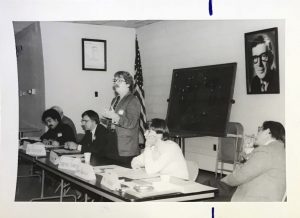
In 1981 WNYCOSH organized a statewide campaign with other COSHs and unions to push for passage of Right to Know legislation, giving workers the “right to know” what toxic chemicals they are working with.
In 1985 WNYCOSH helped establish a dedicated safety and health funding source for New York State to provide grants to COSHes, unions, businesses and educational institutions to train on occupational safety & health issues, the NYS Hazard Abatement Board OSH Training & Education Program.
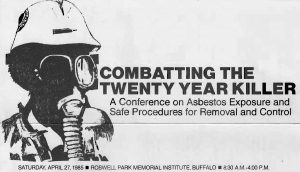
Combatting the Twenty-Year Killer: A Conference on Asbestos Exposure
WNYCOSH held major conference on worker exposure to asbestos, legal avenues of compensation, toxic torts and other strategies to safeguard against exposures.

WNYCOSH and allies across the state successfully lobbied for NYS Toxic Torts Legislation, that allowed claimants to pursue expired claims for hazardous materials like asbestos.
WNYCOSH organized a consortium of scientific, health, labor and educational institutions (Union Health Care Coop, SUNYAB Toxicology Research Ctr., Chemical Hazard Information Program-NYSSILR Cornell and UAW Region 9) to provide training and technical assistance to employees and employers in WNY, the Workers’ Occupational Health Consortium (WOHC).
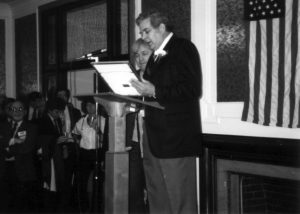
Union Health Care Co-Op
WNYCOSH and local labor unions organized and opened Western New York’s first occupational health clinic to diagnose and treat worker injuries and illnesses in 1987.
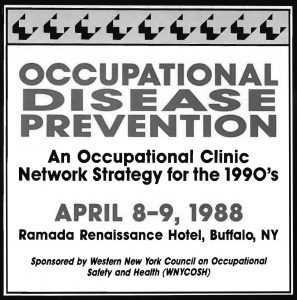
WNYCOSH and Roswell Park held a conference to examine how occupational clinics would contribute to safer workplaces, and what the emerging role of labor, public institutions and the medical community played in recognizing and controlling occupational disease.
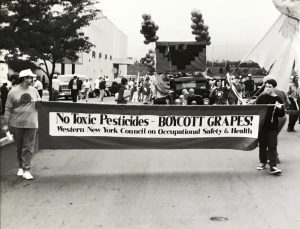
WNY Grape Boycott
WNYCOSH endorsed the UFW grape boycott and organized a local boycott coalition with labor, environmental, religious, university and community partners to ban the use of pesticides and to address hazardous exposures to workers, communities and consumers.
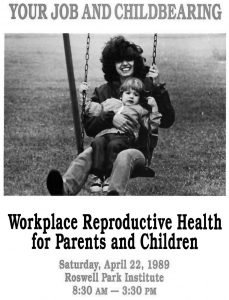
WNYCOSH held a major conference with Roswell Park, March of Dimes, the Cornell University ILR School and the SUNYAB Toxicology Research Center on reproductive hazards in the workplace.
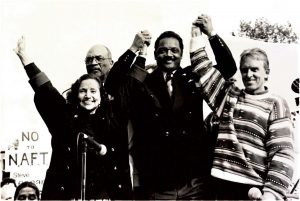
Anti-NAFTA Coalition
WNYCOSH was a leading voice locally in opposing the North American Free Trade Agreement. Unions, COSH groups and worker advocates across the county fought NAFTA for its many anti-worker provisions.

OSHA Reform Campaign
WNYCOSH played a major role in national campaign to support OSHA reform legislation—the Comprehensive Occupational Safety & Health Act that would increase criminal penalties for OSHA violations and give workers the right to refuse hazardous work.
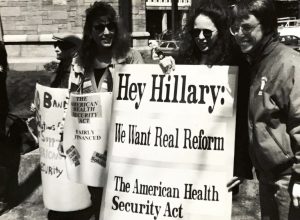
1992 – 1994 – WNY Health Care Campaign
WNYCOSH formed a coalition with Citizen Action and CWA health care unions, as well as Physicians for a National Health Program’s Dr. Deborah Richter to push for a single payer plan.
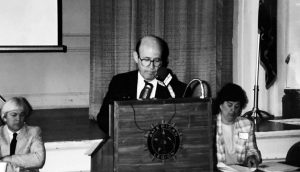
WNYCOSH held conference on pesticide use and Integrated Pest Management in schools with NYS Attorney General Robert Abrams as a keynote speaker.
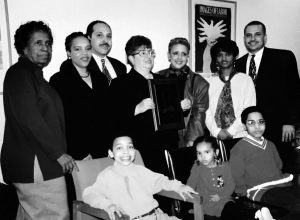
In 1993 we dedicated the Norm Harper Occupational Health Training Center at WNYCOSH.
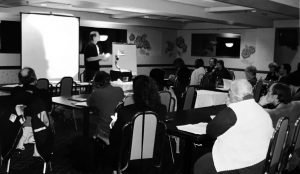
As an active member in the NYS Labor & Environment Network WNYCOSH organized major conference in Niagara Falls on holding corporations accountable and corporate welfare recipients.
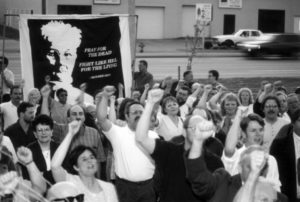
20th Anniversary Celebration Becomes Rally at Police Station
300 activists rallied at the Cheektowaga Police Station during WNYCOSH’s 20th anniversary celebration following the arrest of keynote speaker UFW President Arturo Rodriguez and 4 others at a local supermarket where they were raising awareness about Driscoll’s labor practices.
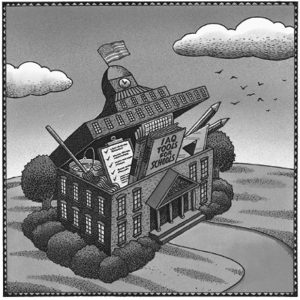
WNYCOSH/EPA Tools for Schools
WNYCOSH established a comprehensive “Tools for Schools” program to assist school districts in preventing and resolving indoor air quality problems in schools.
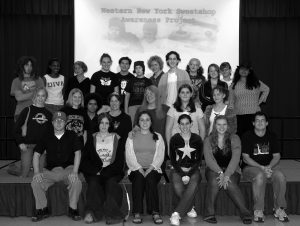
In 2001 WNYCOSH founded the WNY Sweatshop Awareness Project (WNYSAP) in collaboration with CEJ. The WNYSAP project trained youth organizers to stop the proliferation of sweatshop labor through the advancement of the Sweatfree Schools Initiative.
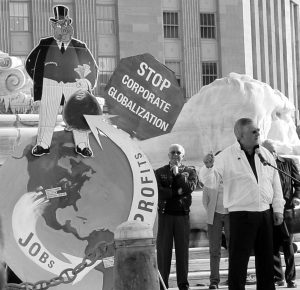
WNY Fair Trade Coalition
WNYCOSH joined a national coalition of unions, environmentalists, farm and religious organizations and launched a local Fair-Trade Campaign to speak out in opposition of CAFTA and to push for Senate hearings.
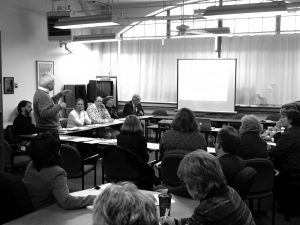
Launched NYS Safe Patient Handling Zero Lift Task Force
WNYCOSH formed the NYS Zero Lift Task Force with health care unions, NYS COSHs, NYS DOL and Kaleida Health to address ergonomic injuries in health care, develop SPH resources for workers and to push for the passage of a NYS Safe Patient Handling Law.
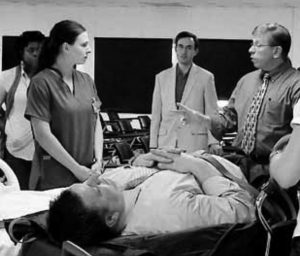
WNYCOSH, union officials, hospital admin, elected officials, UB faculty, students, and SPHHP staff gathered at UB to open the school’s Safe Patient Handling Lab and Training Center.
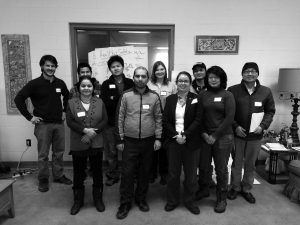
The WNYCOSH Worker Center opened in 2011 to assist workers better understand their rights and strategies to improve their working conditions.
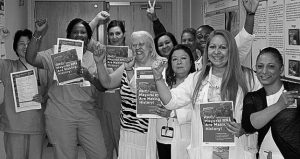
WNYCOSH helped lead the fight along with sister COSH groups and union advocates to pass the Safe Patient Handling Law to reduce worker injuries and improve patient care.
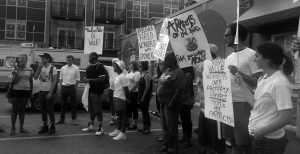
Following a series of assaults on local workers at local 7-Eleven stores, the Worker Center, along with 7-Eleven workers launched the Safety Over Slurpees Campaign to advocate for changes to improve the working conditions for 7-Eleven workers.
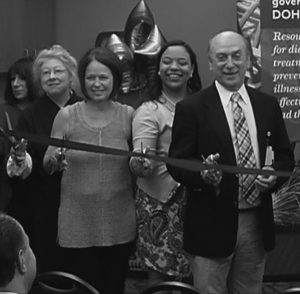
WNYCOSH was the leader in developing the Center for Occupational & Environmental Medicine (COEM) to provide high quality occupational medicine services, specializing in the diagnosis, treatment and prevention of occupational diseases.
PHOTO Courtesy WNY Labor Today
